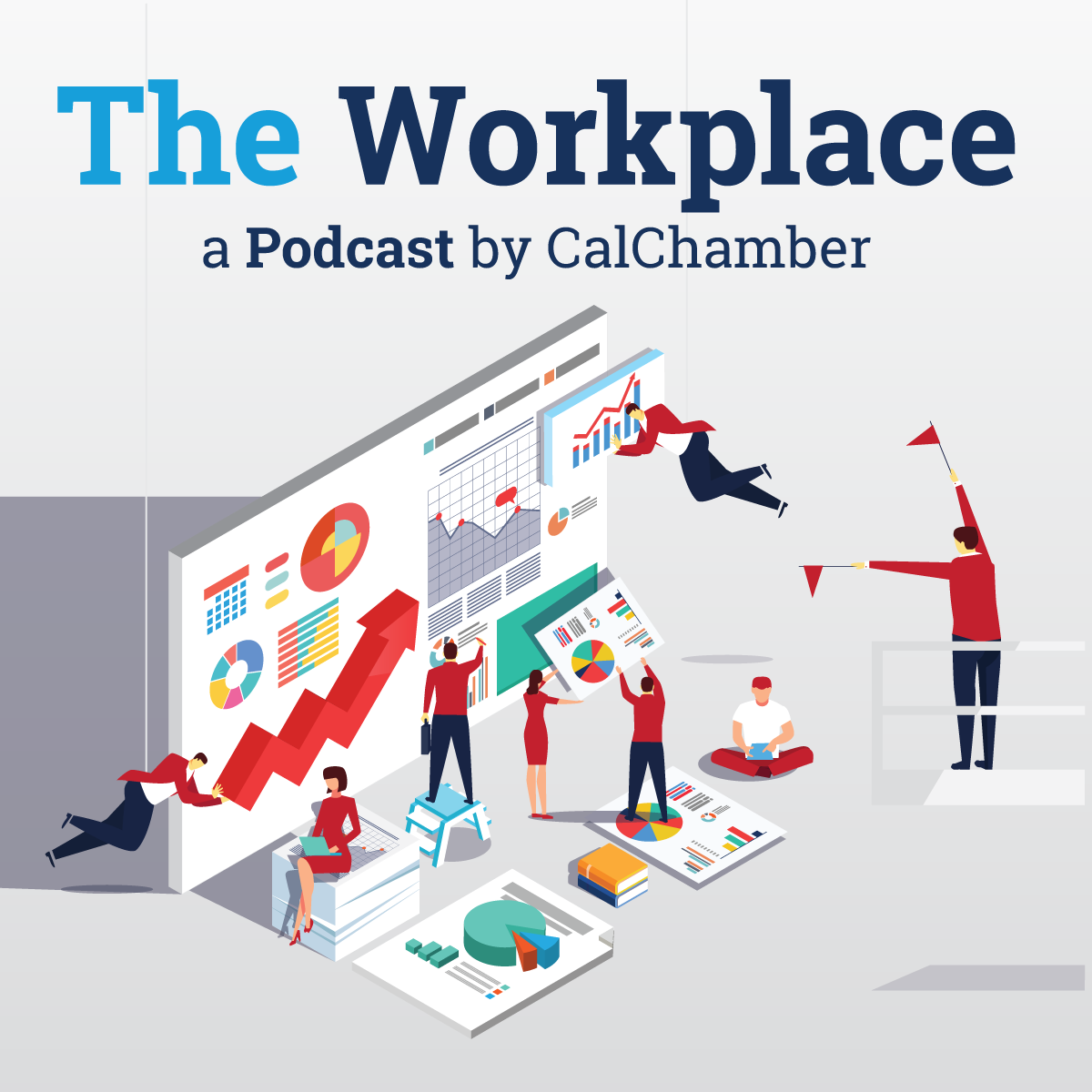
In Episode 133 of The Workplace podcast, CalChamber employment law expert Matthew Roberts and CalChamber policy advocate Robert Moutrie discuss the upcoming federal COVID-19 vaccination mandate for businesses and share how employers can best prepare for the rules.
Given the unpredictability of the COVID-19 pandemic, government guidance and mandates may be altered at any time. Information presented in this podcast is accurate as of September 16, 2021.
Mandate Timeline
On September 9, 2021, President Joe Biden announced that the U.S. Department of Labor is developing an emergency rule to require all employers with 100 or more employees ensure that their workforces are fully vaccinated or show a negative test at least once a week.
The announcement of such a wide-reaching mandate caused much panic among employers and employment law professionals, Roberts says.
But the mandate is not currently in force and in effect, because the federal government needs time to lay out what is to come. This means that employers have some time to plan ahead, Moutrie says. Although there is no federal timeline available, estimates can be made by looking at how long each step of the process takes.
It can be anticipated that the federal Occupational Safety and Health Administration (OSHA) will take approximately 4–6 weeks (on the lower end) to draft the rule language, release it and pass it, Moutrie explains. Then, the California Division of Occupational Safety and Health (Cal/OSHA) will take another 30 days to pass its own version of the rules, which can either be equivalent to the federal rules or be more stringent.
Lastly, it is expected that once the mandate is out, businesses will have a grace period to get their employees into compliance.
Of course, Moutrie caveated these estimates as “a reading of the tea leaves” and noted the process could be shorter or longer, but estimates that employers can expect to have a 3–4-month window in which to prepare for the new rules.
Best Practices
Without any published language available, Roberts says that he cannot comment on what exactly employers need to do, but there are some general best practices that employers can do right now.
• First, Moutrie recommends that employers decide on whether they will require vaccinations or offer the option of weekly testing. Some companies are already requiring that all their workers be vaccinated, but this decision is an individual company’s choice and may depend on industry and worker scarcity.
• Second, Moutrie says that employers should start thinking about the logistics of testing. For larger employers, would it be more practical to have on-site testing? Right now, testing is relatively available through federally subsidized testing, but it is not yet known whether employers will be required to pay for testing in the new federal mandate.
• Lastly, Moutrie expects that the federal mandate will allow for disability and religious accommodation exemptions. This means that small- and medium-sized employers are going to have to make more case-by-case accommodation determinations, and they should think about what their policy will look like and what process they will need to have in place.

